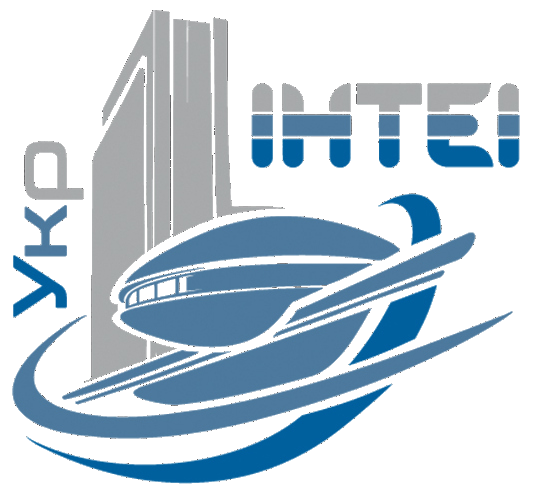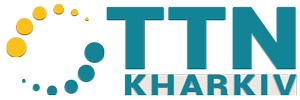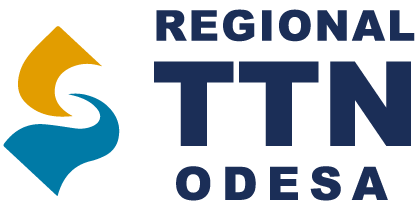Ukrainian Startup Fund: money in innovation or on the wind
 In 2020, the Ukrainian Startup Fund will allocate $ 240 million to startup projects. The first UAH 8.75 million this week should be received by eight national teams. The competition was conducted in two stages. On the first, the experts evaluated the applications of 130 applicants, on the second – the members of the jury selected five winners out of twelve candidates for grants.
In 2020, the Ukrainian Startup Fund will allocate $ 240 million to startup projects. The first UAH 8.75 million this week should be received by eight national teams. The competition was conducted in two stages. On the first, the experts evaluated the applications of 130 applicants, on the second – the members of the jury selected five winners out of twelve candidates for grants.
According to the competition, the experts had to select “promising and innovative ideas for technological startups that demonstrate the high potential of global commercial success.” After announcing the results on social networks skeptical reviews appeared about the selection of “best of the best”.
The next six startups in the seed-stage of development will receive UAH 1.25 million:
AeroDrone
AeroDrone – Ukrainian company that developed the multifunctional DR-60 cargo drone. According to the co-founder of the project Yuri Pederiy, their drone lifts up to 60 kg, flies 6 hours without landing up to 600 km. “We see the great potential of using our technology in the world in agriculture, infrastructure, energy, transport and more“, he said at the patch.
He acknowledged that they had many large foreign competitors in this niche. “Yes, our copters are more expensive. But they are more productive in flight range, spray width, and more. As a result, customers will be able to save on operating costs”, Yuri Pederiy said.
In the first phase, AeroDrone wants to sell drones to farmers and operating partners working with farmers (three drone buyers in the US and Canada have already been found). The company also intends to receive additional income from the subscription to their patented Mission possible program (fly-by-fly software), operator training, and service support.
The entrepreneur hopes to start mass production of copter and to create and sell 30 drones already this year. Continue producing one drone per week.
BIOC
“BIOC is the biopolymer of the future,” so presented the nanopolymerization technology developed by Ukrainian engineers to project consultant Kateryna Knyshchuk. At first, she struck the jury with dreadful numbers. Since 1950, 6.68 billion tonnes of plastic have been produced worldwide. This figure is increased by 370 million tonnes annually. Only 9% of them are recyclable, 12% – incinerated. Ukraine’s demand for plastic is 3500 tons per month.
“The UN warns that if the world does not find a solution to the problem, then by mid-century, there will be more plastic in the ocean than fish. This decision could be the development of Ukrainian technologies. Our biopolymer decomposes 100% over several years. It consists of 70% corn starch, 30% polylactic acid and several modifiers. The development will allow to clear the Ukrainian landfills and stop the pollution of the environment with plastic”, Kateryna Knyshchuk explained.
Also, starting production will allow you to create a high value-added product. According to technologists, Ukraine sells corn for export at $ 160 per ton, and can produce biopolymers at $ 3000. The eco-material can be used to produce bioplastic bags, shoe covers, diapers, disposable tableware and gloves.
The developers admit that they have some powerful foreign competitors. “But their bioplastics are only 40% starch. We want to make a cheaper and better product”, said Kateryna Knyshchuk.
The team is looking for $ 600,000 to build the first module with a capacity of 4,000 tons per year.
However, during the “interrogation” it became clear that the project does not have a patent for the technology that has been developed for 20 years. Two international certificates are required. So far, the technologists have only signed an agreement with the Polish company to buy 2400 tons of bioplastics and a test batch of products made in China. What will prevent the Chinese to quickly “get off” and patent the technology – the authors did not specify.
GeoDesign info
GeoDesign info – reasonable assessment of locations for successful business development. This is how this project is positioned. “We analyze and provide data on the benefits and risks of business development in locations, taking into account location, population and income, competition, traffic and pedestrian flows, architectural and legal constraints. With Big Data, we forecast revenue in locations, identify better locations for business development, recommend better use of commercial space, optimize our existing network”, the developers explain.
The startup already has several clients. The team plans to earn nearly $ 4 million a year to provide consumers with expanded location data and individual research. Potential CA – developers, network businesses, agencies that invest in commercial real estate. “This year we want to collect data across Ukraine. The next one is to scale the project to the whole world”, said startup founder Ivan Mykulyka at the patch.
He was lucky. The members of the jury did not go into detail and believed that the mobile operators, who had long been providing the same services, would not compete with GeoDesign info. “They are limited by the network of towers, the density of cells in cities is a maximum of 500 m. We can even calculate what side of the street people are going to because we have this data“, – said the author of the project. He did not explain how cell density can prevent mobile carriers from using dozens of Big Data targeting. But most importantly, he did not reveal the basis of his project – the sources of GeoDesign info on which the research will be based.
Pravoman
This is a bot lawyer who “lives” in Telegram, Viber and Facebook Messenge. According to the co-founder of the project, Regina Panorenko, their virtual lawyer is able to quickly prepare documents, provide advice, talk useful life 24/7 without days off and coffee breaks.
The authors of the project are aware of the existence of numerous competitors. Consider their preference for versatility: the algorithm provides advice on 52 topics. “And our competitors focus on 1-2 problems“, says Regina Panorenko. What prevents them from expanding the subject quickly is a mystery.
According to the developers, Pravoman can be useful to 23 million Ukrainians (probably, all adults of the country are included in the calculation). The team is looking forward to engaging two major CAs. For B2C (natural and legal persons) basic services will be offered on a subscription basis, an additional fee will be charged for the creation of certain documents and one-off consultations. In this niche, authors want to make $ 73 million a year. For the B2B segment, the platform will launch advertising for lawyers and leads generation. These additional services should bring you $ 533,590 a year. Why the project’s founders are counting on such revenues is unknown.
In the future, the team is going to create a mobile application and enter the international market.
Framiore
This is a premium women’s clothing brand that seeks to occupy a niche of “ethical and responsible fashion”. “Our concept is to collect the wisdom of the peoples of the world, explore this people, go on expeditions, pick up interesting techniques and create modern clothes for women. We want to create quality clothes that can be worn for years”, the founder of the Natalya Naida project explained on the pitch.
What is technological innovation here? The company intends to introduce lean manufacturing and open an R&D workshop to develop its own eco-friendly textiles. While Framiore is using Tencel’s foreign fabric made from eucalyptus wood. What materials will be tested in R&D is unknown. Natalya Naida only told about monitoring competitors: “They make fabrics of orange skins, coffee grounds and more“.
Framiore already has two collections of clothing. By the end of this year, the company wants to reach 2.4 million UAH per month and produce 437 products every month. The key market is European countries. According to Natalya Naida, they already have partners in Scotland and Britain. In the future, the company will expand its presence in the markets of Germany, Spain, etc.
FieldBI
FieldBI – information and analytical system for farmers and landowners of agricultural land. According to co-founder of the project Yevgeniy Kuguka, the artificial intelligence platform will allow users to manage land in real time, to correct inconsistencies in accounting and actual field processing. Integration with the State Geocadastre is planned.
Tenants – both small farms and large agro holdings – will be able to keep a record of leased land, analyze risks with shareholders and leases, see field analytics, plan and monitor relationships with landlords. Unit owners – individuals, state and utility companies – will be able to see if all the documents are framed, evaluate the value of the site, find out whether there are risks of ownership, get advice from lawyers, etc.
While developers are offering free demo access to the system. It is unknown how much the subscription will cost in the future.
About $ 200,000 has already been invested in the project. Two years after launch in Ukraine, the authors want to expand their presence in the Eastern European market.
The following two startups will be awarded at the pre-seed stage of development for UAH 625,000:
BioBin
BioBin – one of the most mysterious projects. On the one hand, its founders pursue a good purpose: to encourage Ukrainians in their kitchens to separate food waste from other types of waste. “Each of you throws away about 250 kg of household waste each year, 65% of it is food waste. The global food waste management market reaches $ 33 billion. A trend in the world is conscious consumption, environmental friendliness. Three out of four people today are ready to separate food waste”, said co-founder of the project Artem Mirgorodsky on a patch.
On the other hand, the developers want to achieve this good goal by creating a mobile application that, for a subscription ($ 2 a month), will teach Ukrainians to sort the garbage. Apparently, the authors find that most people are unable to distinguish potato peelings from plastic. In addition, the application will help to “brag” to friends in social networks their eco-conscious way of life, to find like-minded people and to record a positive impact on nature (reducing CO2, reducing landfills). The author of the article has been sorting the garbage for many years, but for some reason there was never a desire to talk about it.
The app will also calculate how much money a month is thrown into the bucket and will teach you to save. For this purpose, users will have to constantly add to the application the weight of purchased products in grams and the weight of weighted garbage bags with food waste. “We’ve been doing this with my wife for four months now and just getting stoned by the process. 20% reduced product costs. When you constantly monitor the waste – it starts to change your behavior, it forces you to choose, say, not five, but four bananas in the supermarket”, explained Artem Mirgorodsky very economically.
The authors expect that by the end of 2023, they will attract 300,000 subscribers and generate a turnover of 3.4 million euros. In the future, they want to increase revenue by integrating with retailers, monetizing the data they collect, and creating their own marketplace for composters to sell.
Jury members doubted that the project would succeed in attracting users willing to pay to use such an application. Artem Mirgorodsky retorted: “There are applications with a much higher cost of subscription. This is a small amount for the EU and the US (BioBin plans to launch in the domestic market. – Mind). Ukrainians throw in a bucket of $ 300 to $ 1000 a year. If our application helps them save 25% a year, then we will give users ten times the economic benefit than we will subscribe to“. Why consumers are unable to buy unnecessary products without a program is a mystery.
Pytag
This is a wholesale price aggregator. According to the founder of the project Oleg Popov, the platform brings together three target audiences: buyers, sellers and service companies involved in logistics, storage, quality control and more. “We create a service that finds the best deals for each user, including geolocation, types of delivery and forms of payment“, Oleg Popov explained on the patch.
The startup wants to start with an agricultural market where the team has many years of experience. “We are not aware of the problems of our potential customers. Traders cannot see the whole picture of the market, they have no confidence in payment, quality, delivery time. There are a lot of intermediaries making money from farmers in the process. For example, in the grain market alone, intermediaries “have” about $ 1 billion a year“.
The developers have obtained a patent for their automatic bidding algorithm. The team is currently working on a prototype of the service. It plans to launch a full-fledged product this year. In the next two years – to enter the international markets. Oleg Popov assures that they have no direct competitors in the Ukrainian and world markets yet.
The platform is about to earn commissions. For farmers the service will be free of charge.
Source: mind.ua










